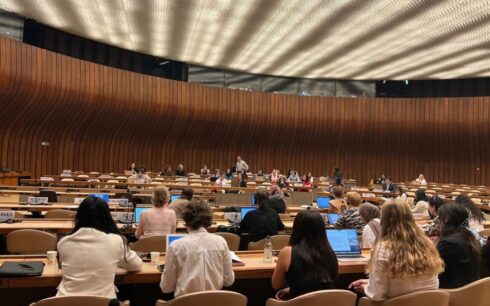With the Taliban’s participation in the Doha meeting confirmed, Afghan women and girls have called on the international community to prioritize human rights issues and avoid “compromising” on the rights.
These women and girls argue that Taliban restrictions have left them deprived of their rights in society. Meanwhile, some Afghan businessmen and private sector representatives emphasize that global sanctions have severely impacted Afghanistan’s private sector, particularly in financial transactions. They insist that the Doha conference must address these economic challenges.
The Taliban’s Ministry of Foreign Affairs recently announced their participation in the third Doha conference, noting that any changes in the agenda or composition could affect their decision to attend. In response, some women and girls have stressed that the global community must not overlook their rights and must prioritize human rights issues on the conference agenda.
A female student remarked, “We urge United Nations representatives to prioritize discussions on women’s rights and education at the upcoming Doha conference.”
Several families have criticized the Taliban for shutting down schools and universities for nearly three years, thus crushing the dreams of countless girls. A Kabul resident expressed, “The Taliban have ruined the future of our daughters. They are deprived of education and confined to their homes. No schools, no universities—our dreams have been shattered.”
Sources have told Amu Television that the Taliban have set conditions for their participation in the Doha conference, including the inclusion of private sector issues, drug trafficking, and climate change. They have reportedly insisted that human rights topics should not be discussed.
The former head of the Chamber of Commerce and Investment believes that economic growth and trade prosperity depend on having an official political address. Without it and adequate facilities, the private sector cannot operate effectively. Azarakhsh Hafizi, the former head, stated, “The lack of an official political address prevents us from securing international loans, and financial transfers are hindered due to the absence of access to the international SWIFT system. I hope the Doha conference helps resolve Afghanistan’s issues.”
Private sector members have complained of specific challenges in transferring money abroad since the Taliban’s takeover, as merchants cannot use banks for their transactions. Previously, a private sector representative criticized the Taliban for bureaucracy and excessive levies.
A board member of the Chamber of Commerce revealed that the Taliban exert various pressures on merchants, collecting money under different pretexts, and stressed that these issues must be addressed.





